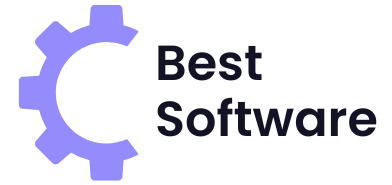Choosing the right website builder is crucial for marketers looking to establish a strong online presence. The top website builders not only simplify the design process but also offer essential marketing tools to enhance visibility and engagement. These platforms allow users to create visually appealing and functional websites that cater to specific marketing strategies.
With numerous options available, identifying which builders best support marketing goals can be overwhelming. This article explores six of the most effective website builders, highlighting their unique features, such as SEO capabilities, integration with social media, and e-commerce functionalities. Marketers can benefit significantly from selecting a platform tailored to their needs.
By understanding the strengths and weaknesses of each website builder, marketers can make informed decisions that align with their objectives. A strategic approach to website creation can lead to improved outreach and customer engagement, ultimately contributing to business success.
Key Takeaways
- The right website builder can enhance marketing strategies effectively.
- Understanding each builder’s features aids in making informed decisions.
- A tailored website can significantly improve online engagement and outreach.
Understanding Website Builders

Website builders are essential tools that simplify the process of creating websites, enabling marketers to develop an online presence efficiently. They offer various features catering to different needs, making them invaluable for anyone looking to establish a brand online.
Definitions and Overview
A website builder is a platform that allows users to create and manage websites without needing extensive coding or technical skills. These tools often provide a drag-and-drop interface, enabling users to customize layouts, choose templates, and add functionality easily.
Popular website builders include Wix, Squarespace, and WordPress. Each offers different capabilities, such as e-commerce functionality, blogging tools, and responsive design options. Marketing professionals often leverage these platforms due to their user-friendly interfaces and integrated features that enhance site visibility and usability.
Importance for Marketers
For marketers, utilizing a website builder is vital for several reasons. First, they are cost-effective solutions for building professional-grade websites without significant investment. Features like templates can streamline the design process, allowing marketers to focus on strategy.
Furthermore, many website builders come with built-in SEO tools to optimize content and improve search engine rankings. This integration is crucial for driving traffic and increasing visibility.
Responsive design features ensure websites function well on both desktop and mobile devices. With an increasing number of users accessing sites via mobile, this capability is essential for effective marketing outreach.
By utilizing these tools, marketers can efficiently create and adjust sites to meet changing market demands.
Top 6 Website Builders

When selecting a website builder, marketers should consider functionality, user experience, and design capabilities. The following options cater well to diverse marketing needs, providing essential features to aid in creating effective online presences.
Wix: Intuitive and Feature-Rich
Wix stands out for its drag-and-drop interface, allowing users to easily customize their websites without coding. It offers a vast collection of templates, ensuring a professional look whether for blogs, portfolios, or online stores.
Key features include:
- App Market: A wide range of applications to enhance website functionalities.
- SEO Tools: Integrated tools help optimize sites for search engines.
- Marketing Solutions: Email marketing, social media integration, and analytics are built in.
Wix is suitable for marketers needing an accessible yet powerful platform that streamlines the design process.
Squarespace: Aesthetically Pleasing Designs
Squarespace is known for its stunning, modern templates that are ideal for visually-driven brands. Marketers can create visually rich websites that reflect brand identity effectively.
Notable aspects include:
- Responsive Design: Templates are mobile-optimized, ensuring a consistent experience across devices.
- Built-in SEO Features: Basic on-page SEO options enhance visibility.
- E-commerce Capabilities: Strong tools for launching and managing online stores.
Squarespace is particularly beneficial for creatives who prioritize design without sacrificing functionality.
Weebly: Beginner-Friendly Interface
Weebly is user-friendly, making it a great choice for beginners in web design. Its drag-and-drop capabilities and straightforward setup process streamline website creation.
Features of Weebly include:
- Simple E-commerce Options: Setting up an online store is quick and easy, with built-in payment processing.
- SEO Basics: Weebly offers basic tools for search engine optimization.
- Integrated Marketing Tools: Email marketing features support promotional campaigns effectively.
This platform serves marketers who need a straightforward, no-fuss solution for quick launches.
Shopify: E-commerce Specialization
Shopify is predominantly an e-commerce platform, tailored for businesses aiming to sell products online. It offers extensive features designed specifically for online retail.
Important features are:
- Robust Inventory Management: Tools to easily track and manage product inventories.
- Payment Gateways: A wide selection of payment options for customer convenience.
- SEO and Marketing Tools: In-built SEO features and marketing integrations help rank products effectively.
Shopify is ideal for marketers focused on establishing and growing online stores with a comprehensive set of e-commerce tools.
WordPress.org: Complete Control
WordPress.org provides unparalleled customization and control for those willing to invest time in learning the platform. It is self-hosted, allowing marketers to create highly unique websites.
Key features include:
- Thousands of Plugins: A vast library of plugins enhances functionality greatly.
- Full Control Over SEO: In-depth control over all aspects of SEO through various plugins.
- Vast Themes Library: A large selection of themes enables tailored visual designs.
Marketers looking to build a sophisticated online presence often prefer WordPress.org due to its flexibility and scalability.
GoDaddy: Marketing and SEO Efficiency
GoDaddy is known primarily as a domain registrar, but its website builder offers valuable marketing tools. It simplifies creating websites while providing essential features for online growth.
Key aspects consist of:
- Integrated Marketing Solutions: Email marketing and social media tools help drive traffic.
- SEO Guidance: Step-by-step SEO suggestions improve site visibility.
- User-Friendly Interface: Navigating and updating websites is straightforward.
GoDaddy appeals to marketers who appreciate a comprehensive solution that combines web hosting with essential marketing functionalities.
Website Builder Comparison

When evaluating website builders, several critical factors emerge: pricing strategies, template variety and design, ease of use, and the level of support and community involvement. Understanding these aspects helps in making an informed decision.
Pricing Strategies
Pricing structures can vary widely among website builders, influencing their suitability for different marketing budgets. For instance, Hostinger offers competitive rates starting as low as $2.49 per month for long-term commitments, making it budget-friendly. On the higher end, plans from Squarespace and Wix typically range from $12 to $40 per month, but they provide comprehensive features and high-quality templates.
Key pricing tiers include:
- Basic Plans: For those needing essential features, starting around $6/month.
- Pro Plans: More advanced tools, typically around $17/month.
Many builders also offer free trials, allowing marketers to test functionality before committing.
Templates and Themes
The quality and variety of templates play a crucial role in aligning a website with brand identity. Squarespace stands out for its aesthetically pleasing designs, perfect for creatives and small businesses.
Wix provides a large library with over 500 templates, catering to various industries. It’s essential to choose a builder that offers:
- Responsive templates for mobile compatibility
- Customizable options to maintain unique branding
- SEO-friendly designs to help with search rankings
While some platforms might have limited themes, the ability to customize and enhance these themes can significantly impact user experience and engagement.
Ease of Use
The user interface and functionality determine how quickly marketers can build and manage their sites. Wix excels with its drag-and-drop editor, requiring no coding skills. Weebly is user-friendly as well, making it suitable for beginners.
Features to consider include:
- Intuitive navigation: Easy access to all tools.
- In-built guidance: Tutorials or tips to assist during setup.
- Flexibility: Ability to modify elements without technical expertise.
A straightforward interface ensures marketers can focus on content creation rather than technical obstacles.
Support and Community
Robust support and an active community enhance user experience, especially during troubleshooting. Squarespace offers comprehensive support via email and live chat, while WordPress boasts a large community forum for peer assistance.
Points to evaluate:
- Availability of 24/7 support or specific hours.
- Extensive documentation: Guides or FAQs to help users navigate common issues.
- Community resources: Blogs, forums, or groups for shared knowledge.
These aspects are vital for marketers who rely on quick resolutions and peer feedback in their website-building journey.
Best Practices for Marketers

Marketers should focus on leveraging website builder features that align with their objectives. Implementing brand consistency and optimizing for conversions are crucial elements that can significantly enhance their online presence and effectiveness.
Aligning Builder Features with Goals
Choosing the right website builder is essential for marketers. They should first identify their specific goals, whether it’s generating leads, building brand awareness, or enhancing customer engagement. Key features to look for include:
- SEO Tools: Look for builders that offer built-in SEO capabilities, such as customizable meta tags and URL structures.
- Analytics Integration: Tracking performance through Google Analytics or other platforms can inform marketing strategies.
- E-Commerce Options: For those selling products, robust e-commerce features like payment gateways and inventory management are vital.
By matching these features with their marketing goals, marketers can create more effective and targeted online strategies.
Staying on Brand
Consistency in branding is fundamental for marketers. They must ensure that all website elements reflect their brand identity effectively. This includes:
- Color Palette: Use consistent colors that align with brand guidelines to create a cohesive look.
- Typography: Select fonts that resonate with the brand’s voice and are readable across devices.
- Imagery: Incorporate images that represent the brand’s values and message.
Marketers should also pay attention to the tone of content and messaging. All communications on the website must reinforce the brand’s personality to create a lasting impression.
Optimizing for Conversion
Conversion optimization should be a primary focus. Marketers can implement several strategies to enhance conversion rates:
- Clear Call-to-Action (CTA): Every page should have a specific and compelling CTA that guides users toward the desired action.
- User-Friendly Design: Navigation should be intuitive, allowing users to find information easily. A clean layout can significantly improve engagement.
- A/B Testing: Regularly testing different versions of web pages can lead to improvements in conversion rates based on real user data.
Incorporating these practices can significantly boost the effectiveness of digital marketing efforts, leading to better outcomes.
Conclusion

Selecting the right website builder is crucial for marketers looking to enhance their online presence. Each platform offers unique features tailored to different needs.
Key Considerations:
- Ease of Use: A drag-and-drop editor is beneficial for those with limited technical skills.
- Marketing Features: Look for tools that support email marketing, SEO, and social media integration.
- Cost: Budget plays a vital role. Some builders offer affordable plans, especially with long-term commitments.
Top Website Builders for Marketers:
- Wix: Known for its powerful features and user-friendly design.
- Elementor: Offers extensive design flexibility with various templates.
- Squarespace: Well-suited for visually-driven brands with stunning themes.
- Weebly: Ideal for small businesses with straightforward e-commerce capabilities.
- Shopify: Excellent for dedicated online stores with robust sales tools.
- Hostinger: An affordable option that does not compromise on essential features.
Marketers should evaluate these options based on their specific requirements. The right builder can significantly impact their website’s effectiveness and user engagement.



